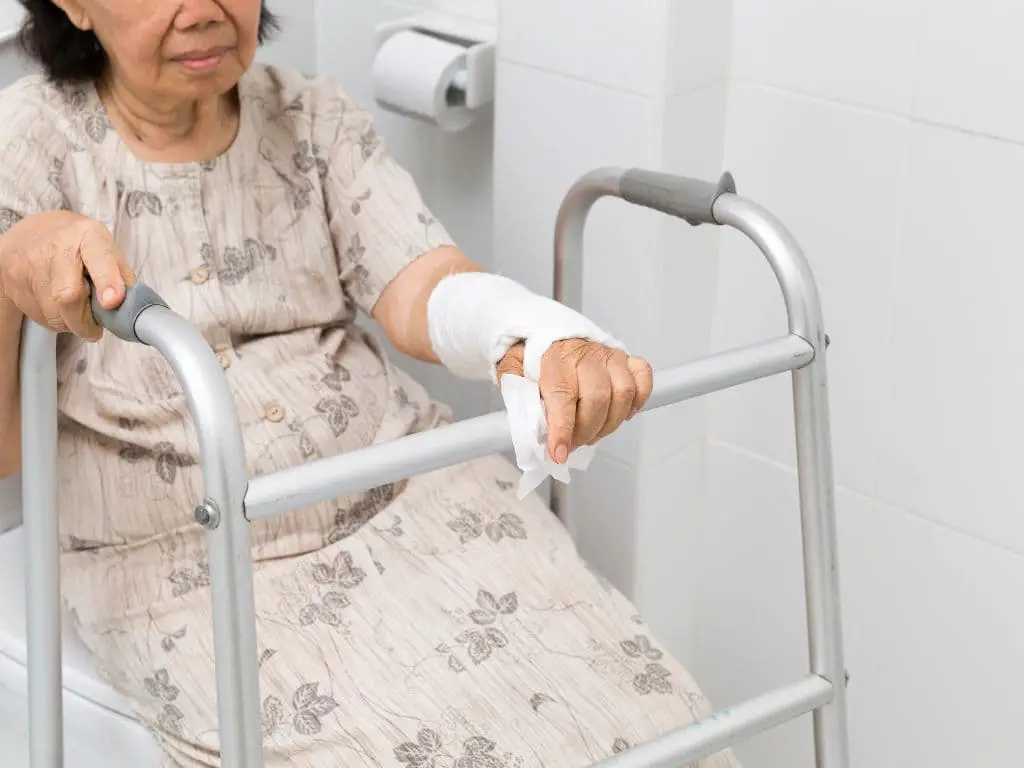How to Wipe an Elderly Person on the Toilet
As the elderly population grows, many aging individuals require assistance with daily activities such as using the toilet. Proper toileting care is essential for maintaining personal hygiene and comfort for senior citizens. Caregivers and nursing staff must utilize techniques focused on dignity, independence and privacy when providing toileting assistance.
When wiping an elderly person on the toilet, it is important to approach the task with sensitivity and respect for their dignity. Caregivers should only offer assistance if requested or obviously necessary, using gentle motions from side to side to avoid discomfort. It is also important to stand on the side opposite of the wiping hand to ensure the senior’s comfort.

Maintaining Cleanliness and Preventing Infections
Elderly individuals are at high risk for infections and skin irritation during toileting routines. Caregivers should follow sanitary protocols and utilize products aimed at preventing discomfort and illness:
- Wear gloves when assisting with toileting
- Wash hands thoroughly before and after contact
- Use gentle, fragrance-free wipes instead of toilet paper
- Apply protective ointments or creams to prevent irritation
- Keep bathrooms and toileting areas disinfected
- Properly dispose of soiled wipes, pads and adult briefs
Specialized Equipment and Aids for Assisted Toileting
Various equipment and aids can make toileting easier and safer for aging seniors:
- Raised toilet seats – Makes sitting and rising easier for those with limited mobility
- Bidet toilets – Reduces need for extensive wiping and cleansing
- Grab bars – Provides stability and assists with sitting down or standing up
- Toilet safety frames – Offers support and helps prevent falls
- Bedside commodes – Allows bedridden individuals to toilet without standing
Choosing products that suit each senior’s needs and abilities can help maintain independence in toileting.
Proper Techniques for Assisting on the Toilet
When helping seniors use the toilet, caregivers should utilize these techniques:
- Guide the senior to the toilet and allow them to undress themselves if able
- If clothing must be removed, preserve dignity by only exposing necessary areas
- If the senior wears adult briefs, carefully remove and dispose of them
- Gently assist the senior in sitting down on the toilet
- Provide support if needed while individual is seated
- Give verbal prompts if required but allow senior to toilet independently
- Offer wiping assistance only if requested or obviously necessary
- Avoid pulling or tugging during wiping; use gentle motions side to side
- Stand on side of senior opposite wiping hand to avoid discomfort
- Apply protective ointments or creams after wiping if needed
- Carefully assist senior in standing up and dressing when finished
Steps should be explained before performed to help senior feel comfortable and informed.
Avoiding Falls and Promoting Safety
Seniors are vulnerable to falls when using the bathroom. Caregivers can enhance safety using these tips:
- Install grab bars, non-slip mats and adequate lighting in bathroom
- Make sure path to toilet is clear of obstacles
- Use gait belt when assisting with walking/transfers
- Allow senior to move at own pace; avoid rushing
- Provide standby assistance or stabilize from behind if unsteady
- Encourage use of call button after toileting to avoid unassisted transfers
- Report falls immediately to healthcare team
Falls risk should be evaluated regularly and appropriate precautions implemented.
Ensuring Privacy and Dignity
It is vital to respect privacy and dignity while assisting with intimate tasks like toileting. Strategies include:
- Knock before entering bathroom and ask permission to assist
- Address senior respectfully and explain procedures being performed
- Do not expose senior or remove clothing unnecessarily
- Provide ample time for senior to toilet, dress and wash hands after
- Offer bedpans, urinals or toileting aids to allow independence
- Step outside bathroom or draw curtain while senior uses toilet
- Ensure doors are shut and senior is covered when others present
Caregivers should maintain professionalism and compassion when providing toileting care.
Promoting Continence Through Scheduled Routine
Incontinence can be embarrassing for seniors. Establishing a toileting schedule can help:
- Take senior to toilet regularly, such as every 2-3 hours
- Assist with toileting promptly upon request
- Learn senior’s normal toilet habits and needs
- Use signage or timers to remind senior of timing
- Limit fluid intake before bedtime to prevent overnight accidents
- Watch for behavioral signs senior needs to toilet
- Provide absorbent, protective undergarments if needed
Scheduled routines allow seniors a sense of control and can improve continence.
Medical Causes of Incontinence in the Elderly
Urinary or fecal incontinence may indicate an underlying medical issue:
- Urinary tract infections – Common cause, especially in elderly women
- Medication side effects – Diuretics, sedatives, anticholinergics
- Enlarged prostate – Common in older men; causes urgency and frequency
- Impaired mobility – Difficulty ambulating to toilet in time
- Dementia – Forgets toileting, inability to recognize need
- Constipation – Can cause fecal incontinence if severe
- Pelvic floor dysfunction – Weakened muscles causes leakage
Incontinence should be reported to doctors to identify and address medical factors involved.
Specialized Products for Incontinence Issues
When incontinence is present, incontinence products can help manage symptoms:
- Absorbent pads and guards – Worn in underwear to absorb leaks
- Adult briefs and undergarments – Provide maximum protection from accidents
- Waterproof mattress covers – Protects bedding from moisture
- Moisture barriers – Placed on chairs to keep surfaces dry
- Urinals – Allows men to urinate without standing
- Bedside commodes – For immobile individuals to toilet in bed
Using appropriate products preserves dignity and skin integrity in incontinent seniors.
Caring for the Elderly with Compassion
Toileting care requires patience and understanding of the challenges seniors face. With sensitivity and compassion, caregivers can maintain dignity and cleanliness during toileting assistance:
- Explain procedures; gain trust and cooperation
- Work with seniors’ abilities; avoid forcing
- Provide ample time for tasks; avoid rushing
- Ensure privacy during intimate care
- Treat seniors with respect at all times
- Attend to needs promptly to avoid accidents
- Reassure seniors when accidents occur
- Report concerns to nurse to optimize care
Person-centered care and respectful communication enhances the toileting experience for the elderly.






